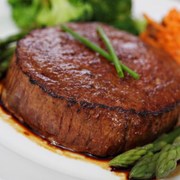 Photo: Getty Images
Photo: Getty Images
Zinc is an important mineral that is critical to biological functions, including healing, fertility, hair growth and immunity. The bulk of one’s daily zinc intake comes from nutrition. Since the body doesn't excrete zinc, zinc deficiencies result from inadequate intake.
The primary way to ensure adequate consumption of zinc is to eat a balanced diet. Foods that are high in zinc include lean red meats, seafood (especially herring and oysters), peas and beans. Galvanized cookware may also leach zinc into your food, adding to your nutritional intake.
Accordingly, when our zinc supplies are low, it’s important to take a supplement. Most often, zinc supplements come in the form of a zinc chelate, which allows for rapid absorption of the zinc into the body. Zinc chelate can also be used as fertilizer for plants, which can also become deficient.
When the body is lacking sufficient amounts of this mineral, you can begin seeing negative effects, such as brittle and damaged hair and eventually hair loss, as well as susceptibility to illness and difficulty healing.
The body uses zinc to produce DNA and RNA, regulate immune system functions and repair cells. This trace mineral directly affects reproduction, growth, physical healing and the senses of both smell and taste.
The recommended dietary allowances (RDA) for zinc intake include 15mg for men and pregnant women, and 12 mg for women.
As with all medications and supplements, be sure to consult your physician before taking zinc supplements. Also, seek medical care if you experience side effects.
The most notable side effects of zinc chelate include gastrointestinal issues. The stomach and intestines break down oral supplements, enabling the blood to deliver the nutrients to organs.
Reactions to zinc can include heartburn, indigestion, nausea, vomiting, abdominal cramps and diarrhea. In addition, zinc supplements may cause fever, chills, sore throat, weakness and fatigue.
People with kidney disease should consult their physicians, who may recommend taking low doses or skipping supplementation, according to the National Institute of Health.
High doses of zinc supplements taken over time may cause urinary tract infections, as well as the reduced ability to urinate. Moreover, men carry greater risk of UTIs, as there is the potential for prostate enlargement, which constricts the flow of urine.
Some indications of zinc overload include vomiting and headaches. Acute reactions such as chest pain, dizziness, fainting, shortness of breath, vomiting, and yellow eyes or skin require immediate medical treatment.
Long-term use of a high dose of zinc may produce chronic reactions, including, but not limited to reduced levels of HDL and urinary problems. In addition, taking a single dose of 10-30 grams of zinc can be deadly.
What is Zinc Chelate? Web. www.eHow.com. Accessed 8 Feb. 2012. http://www.ehow.com/about_5348347_zinc-chelate.html
What is Zinc Chelate? Web. www.livestrong.com. Accessed 8 Feb. 2012. http://www.livestrong.com/article/188561-what-is-zinc-chelate
Zinc Supplement Side Effects. Web. www.livestrong.com. Accessed 7 Feb. 2012. http://www.livestrong.com/article/30514-zinc-supplement-side-effects
What are the Benefits of Zinc Supplements. Web. www.livestrong.com. Accessed 7 Feb. 2012. http://www.livestrong.com/article/24491-benefits-zinc-supplements
Reviewed February 10, 2012
by Michele Blacksberg RN
Edited by Jessica Obert





Add a CommentComments
There are no comments yet. Be the first one and get the conversation started!